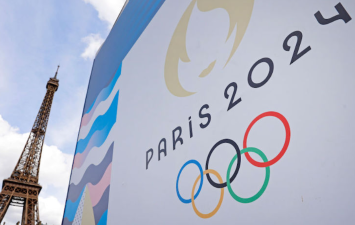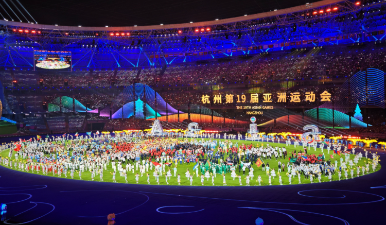Why Are the Olympics Held Every 4 Years?
Starting with the origins of the ancient Olympic Games in worship of Zeus, this article explains the religious tradition of holding them every four years at Olympia, beginning in 776 BC. It emphasizes the connection between the four-year interval and the ancient Greek calendar and war truces, and discusses how the modern Olympic Games, after their suspension in 393 AD, revived this cycle (referring to the 1894 resolution establishing the International Olympic Committee).
Starting with the origins of the ancient Olympic Games in worship of Zeus, this article explains the religious tradition of holding them every four years at Olympia, beginning in 776 BC. It emphasizes the connection between the four-year interval and the ancient Greek calendar and war truces, and discusses how the modern Olympic Games, after their suspension in 393 AD, revived this cycle (referring to the 1894 resolution establishing the International Olympic Committee).
Religious and Political Significance
These four years represent a complete Olympian cycle, during which the Games became a major festival in the ancient Greek world, carrying both religious and political significance.
The ancient Olympic Games were originally held to commemorate Zeus, the chief god in Greek mythology. The four-year cycle may have been linked to the religious rituals and sacred times of the time. Every four years, Greek city-states would suspend their wars to participate in or watch these sacred events together, a ritual symbolizing peace and unity.

- The Golden Balance of the Winter and Summer Olympics
The Winter and Summer Olympics alternate, forming a "Summer Olympics-Winter Olympics-Summer Olympics" cycle. This design avoids homogeneity in the events while creating unique experiences through geographical and climatic differences. The 2022 Beijing Winter Olympics and the 2024 Paris Summer Olympics will be separated by just 14 months, setting a record for the shortest interval in history.
- A Century-Long Game Between Military and Sports
Coubertin, the father of the modern Olympics, suspended the Olympics due to World War I. The International Olympic Committee established a four-year cycle to avoid years of major military conflict (such as the two world wars) while ensuring stability. This "safe interval" strategy was particularly evident during the Cold War, and the confrontational boycotts of the 1980 Moscow Olympics and the 1984 Los Angeles Olympics only reinforced the symbolic significance of the four-year cycle.

Special Variations and Future Challenges
- The Rule-Bending Game Behind the Postponement
The 2020 Tokyo Olympics became the first Olympics not to follow a four-year cycle, but the International Olympic Committee, through revisions to the Olympic Charter, incorporated a "force majeure" clause into the rules. Will this flexible mechanism lead to cyclical disruption? The postponement of venues for the 2024 Paris Olympics has exposed what vulnerabilities in the Olympic system?
- The Permanent Host Site Controversy
In 2021, the International Olympic Committee voted to award the 2036 Olympic Games to Los Angeles, marking the city's fifth hosting of the Summer Olympics. Is this "rotating host" model sustainable? Data shows that the average preparation cost of the past five Olympic Games reached $4.2 billion, yet only three were profitable.
- The Impact of Emerging Events
Esports will be included in the 2024 Paris Olympics for the first time, forming a "dual track" with the Olympics. Will this change alter the four-year cycle? Esports uses a points-based qualification system, which conflicts with the cyclical training model of traditional sports.
Summary
The quadrennial Olympic Games are the product of a combination of ancient traditions, religious beliefs, modern practices, and event management. This four-year cycle not only maintains historical continuity but also meets the needs of modern sports and international competitions, ensuring that the Olympic Games remain one of the most influential global sporting events.









